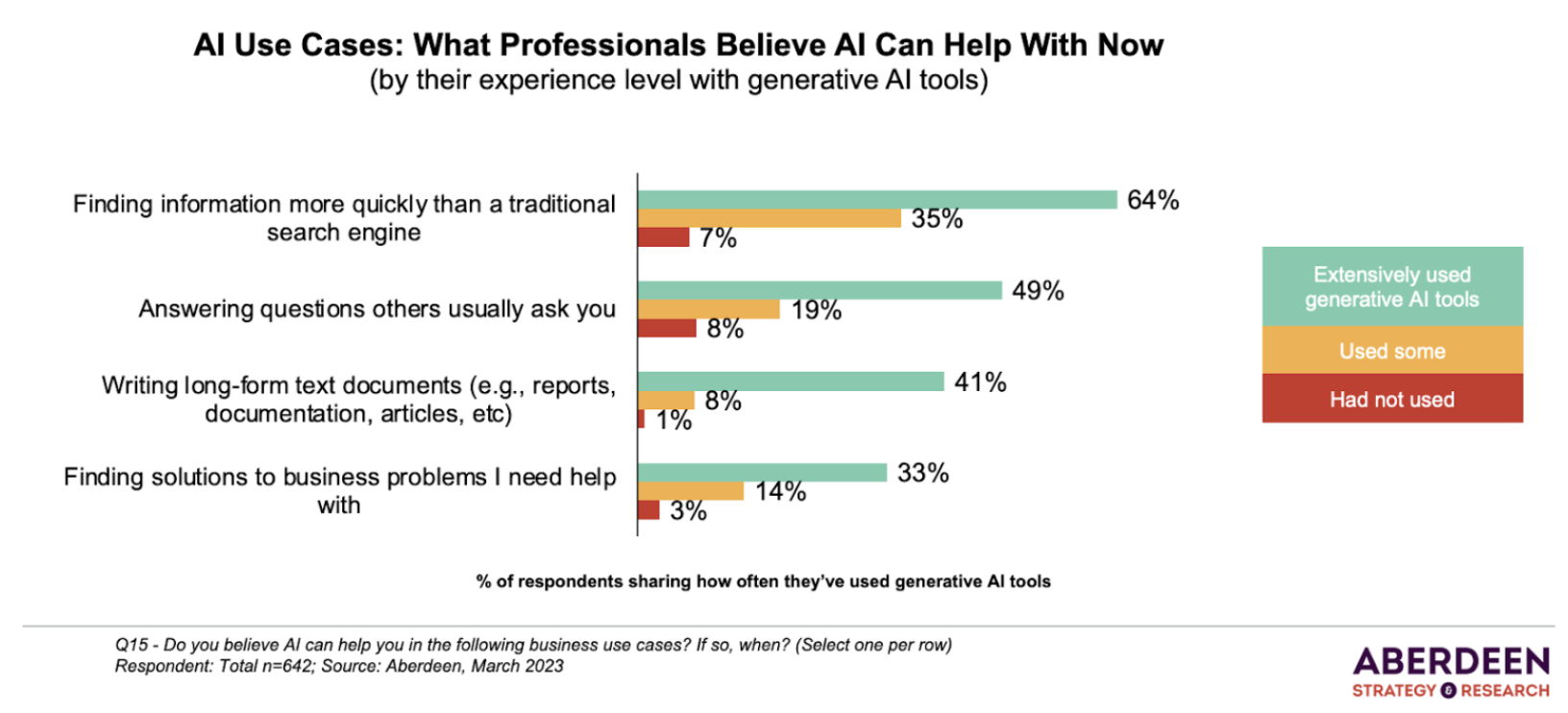Artificial intelligence (AI) has been a buzzworthy topic for years — even decades — but the recent release of generative AI tools such as ChatGPT and Dall-E 2 has captured the public’s imagination. For the first time, anyone with an internet connection can gain access to tools capable of producing very human-like creative content, whether that’s a blog post on SEO best practices in the style of Hemmingway, a book report on Lord of the Flies, or an image of a ferocious orange dinosaur in the style of Van Gogh.
As with any new and potentially disruptive technology, society is exploring the possibilities unlocked by generative AI and grappling with negative consequences that might result from its widespread use.On one hand, tools like ChatGPT have the potential to make life easier for people, liberating them from time-consuming tasks. But on the other hand, advanced AI could put jobs at risk. When a computer can churn out coherent blog posts, passable poetry, plausible answers to complex questions, functional code, and frame-worthy landscape photos within seconds, the humans that currently produce those types of content might rightfully worry about their future career prospects.
To learn more about opinions on these AI-powered tools, we recently surveyed 642 professionals about how they believe artificial intelligence will affect their personal and professional lives in 2023 and beyond.
Mixed Opinions on the Future Impact of AI
While respondents are split on whether the changes AI will bring will be positive or negative — 41% are hopeful, 39% are worried, and 19% are unsure — most can agree on one thing. Our study reveals that two-thirds of respondents (67%) believe that the development of advanced AI will alter society greatly, and in unexpected ways.
Regarding the benefits of AI in the workplace, 60% of respondents believe AI will automate tasks that enable them to focus on more strategic initiatives. Additionally, 54% believe AI will have a positive impact on their line of work.
But with new opportunities come new challenges too. Among all respondents, 57% believe AI will create major data privacy issues and 53% are concerned that AI will put their jobs at risk.
Current and Future Business Use Cases for AI
AI has long shown a great deal of promise and has been hyped as the next big thing. But it hasn’t necessarily been useful to the mainstream. But our research suggests that the recent introduction of generative AI tools is accelerating the use of AI by the general public. At the time of our study (February and March 2023), among respondents who shared whether they’ve used generative AI (e.g., ChatGPT, Dall-E 2, Bing Chat) most (59%) had tried it, with 56% using AI chatbots at least once, and 20% using text-to-image tools at least once.
With AI, seeing is believing
According to our study, those who have tried generative AI tools are significantly more likely to say they’re helpful for a wide range of business use cases, compared to non-users. For example, 64% of respondents who had extensively used tools like ChatGPT said they can already help find answers more quickly than a traditional search engine, nearly half (49%) said AI-powered chatbots can answer questions others usually ask them, and 41% said AI is already helping to write long-form documents such as reports and articles.
Conversely, those who had yet to try generative AI tools were far less likely to find them useful for various business use cases, but we anticipate this sentiment to shift as adoption of these tools increases in the future.
How AI Might Shape the Future of the Internet
Importantly, nearly half of all survey respondents (48%) believe that the development of advanced AI could be as important as the creation of the internet. That figure jumps higher among generative AI power users (74%) and members of the millennial generation and younger (62%).
We’ve already touched upon one big way AI might change the internet, and it’s all about how we’ll find answers to questions. With search engines driving a large share of web traffic, even a small change to the status quo could potentially disrupt the flow of visitors to websites and disrupt the current paradigm, which has huge implications for the entire ad ecosystem.
Are the search engine’s days When we asked respondents to think about how they’ll find information online at some unspecified time in the future, AI-chatbots (42%) won out over search engines (24%) by a wide margin.
If chatbots are able to provide the answers we need without requiring us to click through to a website, both publishers and advertisers will have access to fewer potential readers and customers, respectively.
In a related note, 84% of respondents believe AI-generated answers should cite and link to the original sources, so there is an expectation from users to have links appear in the results as they do today.
Want to Learn More About Our AI Research?
For a more in-depth look at our AI study and insights on how it might impact your B2B marketing strategy, check out the AI forum in Spiceworks and contact us to set up a meeting with one of our experts.
Data and insights from this article were sourced from the Spiceworks Voice of IT community. The Spiceworks Voice of IT gives IT pros a chance to have their collective voices heard, and gives IT vendors and marketers a chance to hear those voices.
To join the Voice of IT community, go to this page and be a part of our next survey!



